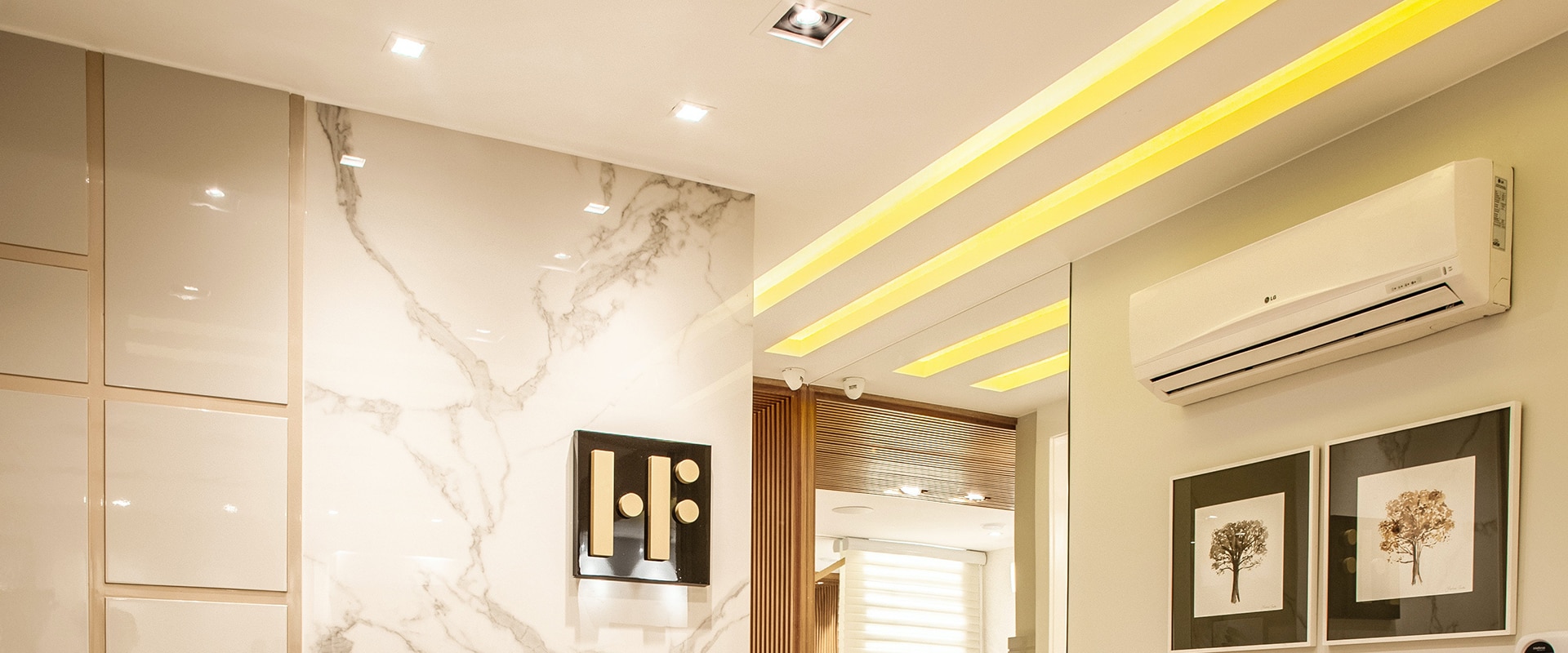Introduction: Why regular maintenance of your air conditioner is important
Summer is just around the corner and for many of us, that means using our air conditioner to stay cool. However, did you know that regular maintenance of your air conditioner is essential to ensure maximum performance and extend its lifespan? Indeed, a poorly maintained air conditioner can lead to lower indoor air quality, increased energy consumption and increased repair costs. In this article, we’ll explain why regular maintenance of your air conditioner is so important and how you can do it yourself to save money in the long run.
The essential steps of maintaining your air conditioner
The steps to maintain your air conditioner may seem daunting, but in reality, they are quite simple. By performing these tasks regularly, you can extend the life of your air conditioner, improve its performance, and save money in the long run.
The first step is to clean the filters on your air conditioner. Filters are designed to trap dust, debris and other particles from the air, which can lead to rapid build-up and reduce airflow in your system. To clean the filters, remove them from the unit and run them under warm soapy water. Allow them to dry completely before putting them back in place.
The second step is to clean the coils on your air conditioner. Coils are responsible for transferring heat outside your home, but they can easily get dirty and covered in dust. To clean the coils, remove the outer housing from the unit and use a vacuum to remove any accumulation of dust or debris.
The third step is to inspect the air ducts of your air conditioner. Ducts can become clogged with debris or foreign objects, which can reduce the efficiency of your system. Check the ducts to make sure they are clean and there are no leaks.
The fourth step is to check the refrigerant level of your air conditioner. If the refrigerant level is low, it can cause the unit to overheat and lead to reduced performance. If you are not sure how to check the refrigerant level, it is best to seek the help of a qualified professional.
Finally, the fifth step is to inspect the fans and compressor blades of your air conditioner. Fans and blades can become damaged or worn, which can lead to reduced performance and increased energy costs. If you notice signs of wear, contact a professional to replace the damaged parts.
By following these simple steps, you can maintain the maximum performance of your air conditioner and extend its lifespan. Plus, it can help you save money in the long run by avoiding repair costs and reducing your energy costs.
How to clean your air conditioner filters
One of the most important elements of maintaining your air conditioner is regular cleaning of the filters. Your air conditioner filters play a key role in the quality of the air you breathe in your home, as well as the efficiency of your system. Dirty filters can impede air circulation and force your air conditioner to work harder to cool your home, which can increase your energy consumption and electricity bill. Here are some simple steps to clean your air conditioner filters:
- Turn off your air conditioner: Before you start cleaning the filters, be sure to turn off your air conditioner completely to avoid any risk of injury or electric shock.
- Remove filters: Your air conditioner filters are usually located at the front of the unit and are easily accessible. Remove the filters gently and check their condition.
- Clean filters: If filters are dirty, use a vacuum cleaner to remove dust and coarse dirt. Then wash the filters with warm soapy water and let them dry completely.
- Replace the filters: Once the filters are completely dry, replace them in your air conditioner. Make sure they are properly positioned and safely engaged before restarting your air conditioner.
It is recommended that you clean your air conditioner filters at least once a month during the season of use. If you have pets or allergy issues, you may want to clean your filters more often to maintain air quality in your home. In general, the more regularly you clean your air conditioner filters, the more efficiently and long-lasting your system will work.
How to check the refrigerant level of your air conditioner
Refrigerant is a liquid that circulates through the air conditioning system to absorb and remove heat from the surrounding air. When the refrigerant level is too low, your air conditioner won’t be able to effectively cool your home. It is therefore important to regularly check the refrigerant level of your air conditioner. Here’s how to do it:
- Turn off your air conditioner: Before you start any checks, it’s important to turn off your air conditioner completely and unplug it for safety reasons.
- Locate copper tubes: Copper tubes connect the indoor unit of your air conditioner to the outdoor unit. They are often covered with an insulating sheath. Remove the insulating sheath to access the tubes.
- Check the tubes: You should see two copper tubes, one larger than the other. The smallest is the suction tube, while the largest is the discharge tube. Place your hand on each tube to feel if one of them is colder than the other.
- Use a pressure gauge: To accurately measure the refrigerant level, you will need a pressure gauge. Make sure you have the right type of pressure gauge for your air conditioning system. There are pressure gauges with digital and analog reading.
- Connect the pressure gauge: Connect the pressure gauge to the valves at the end of the copper tubes. Read the instructions that came with your pressure gauge to learn how to plug them in properly.
- Read the pressure levels: Once the pressure gauge is in place, turn on your air conditioner and wait for it to run for about 10 minutes. Then read the pressure levels on the pressure gauge. If the pressure level is below the recommended range, it means that the refrigerant level is too low and it needs to be recharged.
- Call a professional: If you are not comfortable checking the refrigerant level of your air conditioner, or if you find that the level is low, it is best to hire a professional to do it for you. Qualified air conditioning technicians can quickly diagnose and resolve refrigerant problems, ensuring optimal performance of your air conditioner.
By following these simple steps, you can check the refrigerant level of your air conditioner and make sure it is working efficiently. It’s important to maintain your air conditioner regularly to extend its life and save money on long-term repair costs.
How to inspect your air conditioner ducts
Inspecting the ducts of your air conditioner is an important step in the regular maintenance of your air conditioning system. Your air conditioner’s ducts allow cold air to circulate through your home or office, and it’s important to make sure they’re clean and working properly.
To inspect your air conditioner ducts, you will need to remove the vents and grilles from your system. You can use a screwdriver or other tool to unscrew the screws that hold these parts in place. Be sure to note where each piece goes, so you can easily put them back in place later.
Once you have removed the grilles and air vents, you can use a flashlight to inspect the inside of the ducts. Look for signs of dirt, dust, mold or any other buildup that could block airflow. If you find buildups, you can use a vacuum cleaner to gently suck up dirt and dust.
If you notice a significant amount of mold or dirt in your air conditioner ducts, you may want to consider hiring a professional to perform a thorough duct cleaning. Professionals can use specialized tools to remove buildup, which can significantly improve the air quality in your home or office.
Finally, don’t forget to replace the air vents and grilles once you’ve completed the duct inspection. Make sure all screws are tight to prevent air leakage or excessive vibration. Regular inspection of your air conditioner ducts can help maintain a healthy and efficient airflow, and can extend the life of your air conditioning system.
The benefits of regular maintenance of your air conditioner
Regular maintenance of your air conditioner can offer many benefits. Here are some of the most significant benefits:
- Increasing the life of your air conditioner: Regular maintenance of your air conditioner can extend its life. Regular cleaning and preventative repairs can prevent small outages from turning into major problems that could damage the system.
- Reduced energy costs: A poorly maintained air conditioner can consume more energy to provide the same amount of cooling. Regular cleaning of filters, ducts and evaporators can allow your air conditioner to run more efficiently, which will reduce your energy costs.
- Improved indoor air quality: The accumulation of dust, mold and other contaminants in the ducts and filters of your air conditioner can affect the quality of the air you breathe in your home. Regular cleaning can help improve air quality by reducing the amount of dust and mold in your system.
- Increased comfort: A poorly maintained air conditioner can operate irregularly or produce strange noises. Regular maintenance of your system can help improve the comfort of your home by ensuring your air conditioner is running efficiently and reducing noise.
In summary, regular maintenance of your air conditioner can extend its lifespan, reduce your energy costs, improve indoor air quality and increase the comfort of your home. It is therefore important to take the time to clean and maintain your air conditioner regularly.
Conclusion: How to schedule regular maintenance of your air conditioner
Air conditioning is an essential cooling system for your indoor comfort, especially on hot summer days. It is therefore important to schedule regular maintenance of your air conditioner to ensure that it works optimally throughout the year.
The first step in scheduling regular maintenance of your air conditioner is to know the manufacturer’s recommendations. It is advisable to have your air conditioner serviced at least once a year by a qualified professional. This annual maintenance can prevent costly breakdowns and extend the life of your air conditioner.
Then you can schedule regular inspections to make sure your air conditioner is working properly and efficiently. You can also perform some maintenance tasks yourself, such as cleaning filters and checking the refrigerant level.
Finally, it’s important to note that regular maintenance of your air conditioner can save you money in the long run. This is because a well-maintained air conditioner is more efficient and consumes less energy, which translates into a lower electricity bill.
In conclusion, regular maintenance of your air conditioner is essential to maintain its efficiency, extend its life and save money in the long run. Scheduling regular inspections, performing simple maintenance tasks, and having your air conditioner serviced by a qualified professional are important steps in keeping your air conditioning system running smoothly.


